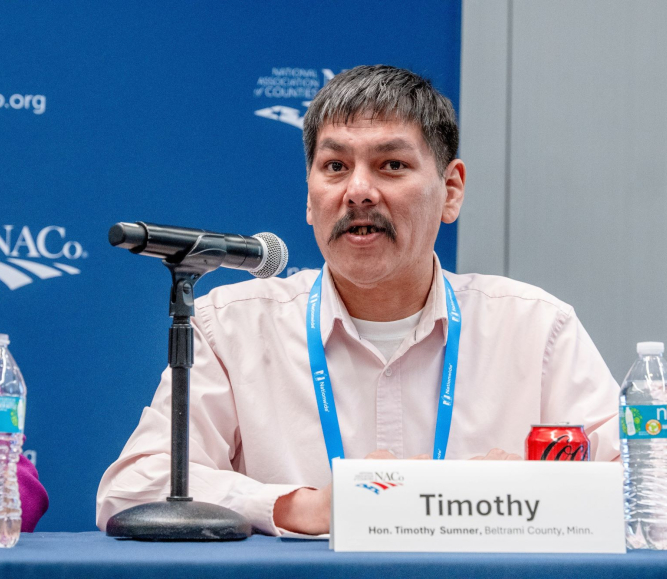Sacramento County partners with tribe to solve Indigenous cases

Key Takeaways
Native Americans disproportionately experience violence and are murdered at higher rates than any other race in the country, and due to resource gaps and distrust in law enforcement, Missing and Murdered Indigenous Persons (MMIP) cases are at least seven times less likely to be solved than any other group.
In California, the Sacramento County Sheriff’s Office and District Attorney’s Office are teaming up with the Wilton Rancheria Tribe to address the crisis through the creation of a Regional MMIP Task Force — the first of its kind in California, which has the fifth-highest number of unsolved MMIP cases in the country.
Jesus Tarango, Jr., chairman of the Wilton Rancheria tribal nation, spearheaded the concept and California Assemblymember James Ramos (the first Native American lawmaker elected in the state) was a vocal supporter and helped make it happen.
“We will not let up,” Tarango said at a task force memorandum of understanding signing in May. “To our community — especially those who have lost loved ones, who have waited years for answers — we will be unrelenting in our pursuit of justice, because our people deserve answers. Our families deserve closure, and our future generations deserve better.”
The Sacramento County District Attorney’s Office is dedicating an attorney, investigator and victim advocate, as well as access to its crime lab’s DNA technology, to MMIP cases. Homicide detectives from the Sacramento County Sheriff’s Office are working on both current and decades-old cold cases.
Previously, if an MMIP case needed forensic work, such as follow-up DNA testing or ballistics testing, it would be taken to the California Department of Justice crime lab, which can have a backlog of anywhere from six months to a year, according to Sacramento County District Attorney Thien Ho. The county district attorney’s office (which is one of only a few in the country that directly runs a crime lab) can expedite that forensic work and make it happen in as little as two weeks, Ho said.
The creation of an MMIP task force is overdue, and should be a standard nationally, Ho said. More education around the prevalence of violence against Native Americans would lead to more institutional progress, he noted.
“We get so engrossed in the everyday struggle of everyday life, of one case after the other, that we then sometimes lose perspective in terms of seeing a need,” Ho said. “… But when I started looking at the statistics — that Native women are 10 times more likely to be murdered — that is just jarring, so with that education and attention, we now need to take action.”
The MMIP task force was able to launch earlier this year in 60 days. That sense of urgency needs to transfer over now to actually getting these cases solved, Ho said.
“We have to act with speed,” Ho said. “We’ve waited, frankly, too long to get this going as a criminal justice system. We’ve waited decades, and every single day that goes by is another day of anguish for the families of those that are missing and murdered of indigenous people.”
At least 20 MMIP cases are recorded every year in Northern California, and the actual number is believed to be much higher due to underreporting and limited data collection.
“These are not statistics — these are human beings,” Tarango said at the memorandum signing. “They are daughters, they are sons, they are sisters, they are mothers — people whose lives mattered.”
KCRA-TV, a local news station in Sacramento County, recently interviewed the grandparents of Khadijah Britton, a member of the Round Valley Indian Tribes who has been missing since 2018.
“Time’s not on my side,” Ronnie Hostler, Britton’s grandfather, said. “… I want justice — that’s my main goal now, is justice.”
A 2017 poll conducted by NPR, the Robert Wood Johnson Foundation and the Harvard T.H. Chan School of Public Health found that 36% of Native Americans living in majority-Native American areas, including reservations, avoid calling law enforcement because they fear discrimination. The task force is a step forward in working to mend that distrust, according to Ho.
Sacramento County Supervisor Pat Hume has worked closely with the Wilton Rancheria Tribe since his time as an Elk Grove City Councilmember. For counties looking to have a closer relationship with tribal governments, it’s important that there’s an acknowledgement that it’s a government dealing with a government, and there’s no “hierarchy” in play, he said.
“We can’t go back and unring the bell of what has happened in the past, but we can certainly start today and try and work better together,” Hume said. “I think the first thing is, you’ve got to give respect to get respect.
“I can’t even fathom the deep-seated mistrust that probably is generational, but I just try and present today that, ‘Hey, I recognize you, I see you, and I’d like to work with you,’ and recognize that it’s not a top-down approach, or we’re not pandering to you. This is important, how do we work together? And I just feel very fortunate that the Sheriff and the DA also recognize the value of that relationship.”
Staff in the District Attorney’s Office who are part of the MMIP task force team are set to undergo training by members of the Wilton Rancheria on tribal laws and procedures and attend tribal cultural competency training from the Pala Tribe in San Diego County, according to Ho. Next year, the office is planning to create a cold case training program for different tribes and law enforcement agencies — not only regionally, but statewide and nationally, according to Ho.
Deputies are also being trained to better understand Public Law 280, which allows California to have criminal jurisdiction over tribal citizens and territory, according to Sacramento County Sheriff Jim Cooper. There’s historically been confusion about the relationship between state and tribal law enforcement, so the training is working to address that.
“We have great supervisors here in Sacramento County, we have great partners in law enforcement, Sheriff Cooper, and we have a great relationship with the tribe, so it made it really easy and natural to bridge that divide,” Ho said. “While in other places, that is sometimes difficult. It was like the perfect storm of people involved in our experiences, in our relationships, to get this across the finish line.”
Related News

Information-sharing bill could protect court workers
The Countering Threats and Attacks on Our Judges Act could provide more than 30,000 state and local judges with access to security assessments, best practices and a database of threats made against colleagues in the justice field.

After historic winter storms, counties assess response
Counties in states that rarely receive much winter weather are assessing their responses to the January storm that left many covered in snow and ice.

California counties fight agricultural crime
Sheriffs' offices and prosecutors in California's central valley make specific efforts to prevent and prosecute crimes against the agricultural community.
County News
Counties and tribes partner to fix shared problems

